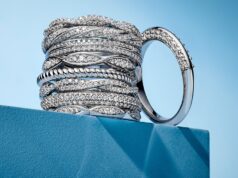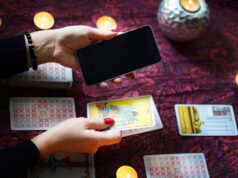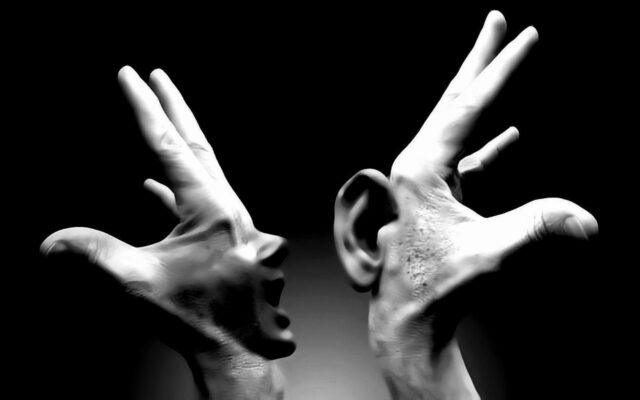
If something has been around for nearly forever, that must surely mean that everyone knows about it, or in the case of body gestures, knows what it means. Or does it? As it turns out, that idea is a bit wrong.
Talk to the Hand
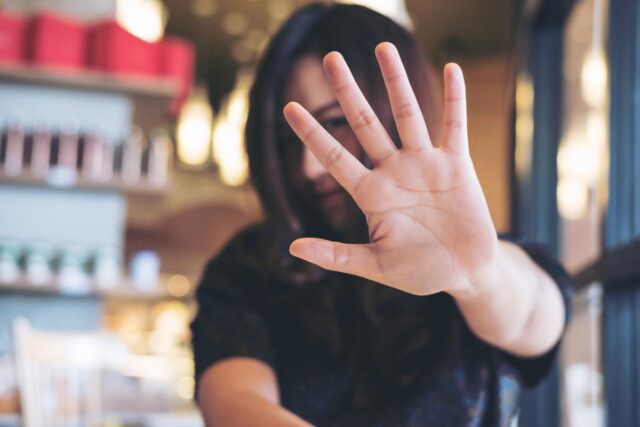
What we think it means:
”Bro, seriously, I don’t give a FUCK about last night’s episode of Glee”
To tell someone to “talk to the hand” is to tell someone to take their words and shove ‘em. This works especially well when passing kiosks in the mall selling herbal remedies and hippie pubic hairs.
What it actually means:
”I smear you with the mark of the disgraceful blackface”
If, when speaking to someone in Greek, a person makes the talk to the hand gesture with their fingers open, they’re basically saying that your family was shit. This is because the gesture in Greece is known as Moutza. Moutza goes back to the insane laws of Byzantium. In Byzantium, a chained criminal was sat, facing backward, on a donkey and had their face smeared with cinder in disgrace. The cinder was collected in a person’s palm and then –Moutza! – spread all over the prisoner’s face.
2. Shaka Sign (Hang Loose)
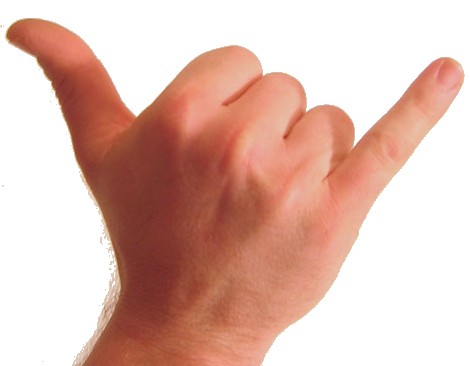
What we think it means:
”Dude, the waves are wicked gnarly today!”
The Shaka Sign, or ‘hang loose’ as most surfers interpret it, is an ancient Hawaiian way of waving. Surfers nowadays take the wave (as in greeting or acknowledgment) to mean wave (as in big wall of water ready to end your shit).
What it actually means:
”The sugar truck’s clear! God, I miss my other three fingers…”
According to the Polynesian Cultural Center (which our live-in ethnologist told us was probably the best resource for Polynesian-based culture in the world) the Shaka Sign derived from local folklore. You see, there was this guy named Hamana Kalili, who we’re just gonna call He-Man, from now on, who worked on the local sugar mill. Well, one day He-Man and The Masters of The Sugar Mill were working on the, uh, sugar mill, when He-Man lost his three middle fingers.
He-Man, not being the lazy type, still wanted to work on the sugar mill so his employers allowed him to guard the sugar trucks. When He-Man saw that the coast was clear, he would wave back to everyone with his thumb and pinkie finger.
3. Thumbs Up

What we think it means:
“I have given you my approval”
The thumbs-up is the most popular form of hand-gesture-based support still active today. When the thumbs up is given, it is assumed that the person doing it is giving their approval. You’d give the thumbs up if your friend got that high-paying promotion he/she was vying for, if your favorite team made it to the playoffs, or if the government rounded up all reality TV producers and stuffed them in Guantanamo Bay. There are even entire professions based around the thumbs up. Don’t believe us? Go check out your local movie reviews real quick.
…Yeah, don’t get so uppity next time, bitch.
What it actually means:
“Your defeat was humiliating, prepare to die.”
Back in the days of the Roman gladiators, a thumbs up meant that the winning gladiator had the emperor’s approval to execute the loser. You see, in the times of savage, manly men there were no consolation prizes and you didn’t get a participant’s trophy – you either won or you lost. In the end, it was often pretty easy to spot the victor (hint: he was still breathing).
In these times, the thumbs up was known by the name police verso, or, the turned thumbs. Interestingly enough, in Ancient Rome, approval used to be conveyed by giving the thumbs down, or, pressing down the thumb. This indicates that our view of the thumbs up for approval comes directly from our thirst for violence. We gave the thumbs up back then to let everyone know that the loser was just too pathetic to live and we approved of his execution. If we took the thumbs up into historical context today, most of our beloved actors, directors, and screenwriters would have been put to death a long time ago. Though in some cases this might not be a bad thing.
4. Handshake

What we think it means:
“It is a pleasure to make your acquaintance.”
The handshake is the most popular form of formal greeting and, as many self-help and motivational books claim, it can make or break any/all business relationships.
What it actually means:
“I have not come here to kill you.”
In times of strife, military leaders used to greet one another with open palms in order to show that they were interested in diplomacy and not violence. Actually, given the state of capitalism, we suppose this one is pretty similar.
5. Saying “God Bless You” After A Sneeze

What we think it means:
“Oh, how unfortunate, you sneezed.”
Seriously though, no one really knows what this means anymore. Though some claim that saying “God bless you” is a way to cram your soul back into your body after the devil takes it, most really say it without thinking about its meaning.
What it actually means:
“That poor bastard’s a goner.”
In 6th century Europe, saying “God bless you” was approximately the same as saying “Well, you lived a good life, I’ll be praying for you.” This is because sneezing was one of the first symptoms of the dreaded bubonic plague. Per Pope Gregory the Great’s request, people would ask for God’s blessing in an attempt to ward off the infestation and/or make their death less painful or horrible.
6. Nodding
What we think it means:
“I agree with that” or “Pour me another one”
The nod has two connotations: one means approval, this one is commonly seen in polite conversation or when guys are trying to score with hot sociology chicks and want to appear like their listening. The second meaning conveys acknowledge and is popularly used in bars to let the barkeep know that you two have seen each other and you would like another drink.
What it actually means:
“Yo, where the titties be at?”
According to Charles Darwin, when babies breastfeed their heads move up and down in search of the nipple when they are hungry and move their heads side to side when they are refusing nourishment.
7. Kissing

What we think it means:
“I love you and would like to display my affection thusly.”
Kissing is the most popular and most powerful display of affection that humans do in public. We like to think that letting our mouths touch is the subconscious desire to affirm our love and our longing to be closer.
What it actually means:
“I still kinda have a thing for my mother.”
Oh yes, Freud will have a field day with this one. It’s interesting to note that speculation has arisen that claims that the first kisses were shared between mother and child. This means that children carried this maternal affection into their personal relationships. Also, there’s something interesting that says that Japan was not familiar with kisses of romantic affection until the 19th century.
8. The Fist Bump
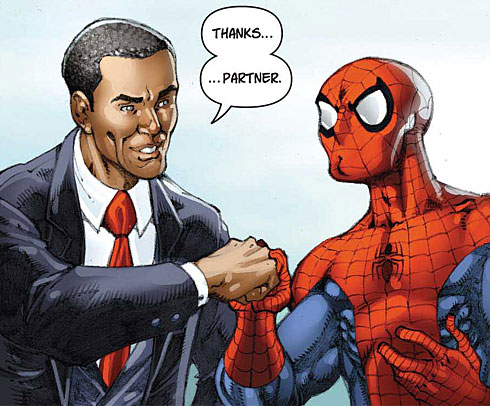
What we think it means:
“Yo D-O to the double G, I’m down with the urban culture.”
The fist bump is beginning to challenge the high-five in the category of social-gestures-that-we-could-really-do-without. Most of its popularization began in the NBA and it has become inseparable with greetings of familiarity and respect.
What it actually means:
“Get your germy mitts away from me!”
Refusing to expose your palm allows a far smaller amount of contact between the two participants in a fist bump. Game show host and germophobe Howie Mandel uses the fist bump to greet contestants on Deal or No Deal. During the Swine Flu Panic, the Dean of Medicine at the University of Calgary suggested that the fist bump could be used in substitute of the handshake as a way to prevent the spreading of or exposure to the disease.

